On Jan. 13, Governor Kemp released a budget report that detailed his recommended changes to the current budget (known as AFY23 or the amended budget) and proposals for the FY24 budget (known as the “big budget”, which begins July 1, 2023).
The Governor’s FY24 budget recommendations included funding for the Pathways to Coverage program (aka “Pathways”). The Pathways program is a partial Medicaid expansion that will likely begin this July. Georgians between the age of 19-64 with incomes at or below the poverty level will be newly eligible to enroll in Medicaid if they meet stringent work and premium requirements. The strict requirements will mean 100,000 low-income uninsured Georgians will gain coverage as compared to the 400,000 who need it. Because Pathways is not Medicaid expansion, the state will pay three times more per person for this program and forgo a $1.3 billion “sign-on bonus”.
The Governor’s budget recommendations include:
- $26.9 million to increase funding for school counselors to help address student emotional and mental well-being
- $52 million to implement the Georgia Pathways to Coverage program established by the Patients First Act
- $92 million in both the AFY23 and FY24 budgets for the state reinsurance program to reduce health insurance premiums for plans sold on the ACA marketplace (healthcare.gov)
$800,000 to Office of Planning and Budget for the all-payer claims database (APCD). Georgia’s APCD will collect claims data from some private insurance companies, the state health benefit plan, Medicaid, and Medicare. State officials and researchers will use the data to better understand and address health care costs, disease patterns, health disparities, and other improvements in Georgia’s health care and coverage systems.
State agencies present budget requests
State agency leaders presented the Governor’s budget requests for their respective agencies to House and Senate Appropriations committees during last week’s “budget week”. This week, the House Appropriations Committee will begin its work by pulling together the budget requests into legislation and reviewing the funding requests before making changes.
The state agencies budget recommendations include:
Department of Behavioral Health and Developmental Disabilities
- AFY23: $1.6 million (M) to increase respite services for individuals with intellectual and developmental disabilities (IDD)
- Respite care allows the caregivers of of people with IDD to take care of other needs, like taking other family members to needed appointments. These short-term care services are critical for caretakers’ emotional and physical well-being.
- FY24: $10.2 M to make permanent 513 NOW and COMP waivers and $4.2 M for 250 new waiver slots
- NOW & COMP waivers allow people with IDD to receive community-based services. Even with these new slots, 7,000 Georgians with IDD are still on the waiting list for a waiver.
Department of Community Health
Some of the biggest changes in DCH’s budgets will come from the gradual ramp down of extra COVID-19 Medicaid funding (beginning April 1 and ending December 31). This extra funding has been provided by Congress and the federal government for most of the COVID-19 public health emergency (PHE).
- AFY23:
- Adjust funding to adjust for changes in federal funding changes for home and community based services.
- $198.3 M increase for Medicaid enrollment growth (all eligibility groups), balanced with a savings of $505.8 M because of the extra COVID-19 federal Medicaid funding.
- FY24:
- $79.2 M for increased use of health services among Age, Blind and Deaf (ABD) Medicaid members (Medicaid for Georgians over the age of 65 or who are blind or disabled).
- Increases in funding across Medicaid groups to account for the ramp down of extra COVID-19 Medicaid funding and other federal funding adjustments. These adjustments add up to about $151 M.
- $52.2 M for implementation of the Pathways to Coverage program (as described above). This will be added to $65.5 M rolled over from the FY22 budget (HB 81), bringing total for the program to $153 M.
- $850,000 to establish a new loan repayment program for mental health professionals. This addition is a result of the Georgia Mental Health Parity Act, passed by last year’s legislature.
Department of Human Services
Beginning April 1st, DHS and DCH will begin to assess the eligibility of 2.7 million Medicaid members, including PeachCare for Kids. For many members, this will be the first time they’ve gone through the “redetermination” process, because it has been paused since the start of the pandemic in March 2020. The continuous coverage protections have been important for Medicaid members to ensure they have access to care during COVID-19. Some of DHS’s budget changes are related to the end of Medicaid continuous coverage, which is sometimes referred to as the “Medicaid unwinding” which will take at least 14 months.
- AFY23: $8.3 M for administrative needs related to the Medicaid unwinding, including:
- $662,000 for 80 additional Medicaid caseworkers
- $5.77 M for a management consultant to oversee quality during the Medicaid redeterminations.
- FY24: $3.24 M for 300 additional Medicaid eligibility caseworkers for redeterminations.
Department of Insurance
- AFY23: $92 M increase for reinsurance program to lower health insurance premiums.
- FY24: $92 M added for reinsurance program to lower health insurance premiums.
Department of Public Health
- AFY23: No changes requested.
- FY24: $931.1 M for expansion of Prep pilot project in rural parts of the state.
Information provided by Georgians for a Healthy Future
